Open each of your arms as broad as it is possible for you and suppose that the space between two far points of two arms is the model of the Earth’s past. What is the amount of space that our existence would constitute? The distance between one of your arm and the elbow of the same arm, perhaps? Could it be just your hand? Or merely a finger? None of this would give you the true answer. Were you to measure how much of the space is filled with our existence, it would be necessary that you find a microscope that can magnify to a great extent.
However, despite simply covering a very small portion of that space, there have been a great many achievements done by humanity. You cannot find any other species that have managed to rule the earth as much as we have been able to. What did make this all possible?
In this summary, we are going to discover those fundamental factors in humanity’s past– starting from the emergence of languages to the development of money –, thanks to which we are who we are in this age.
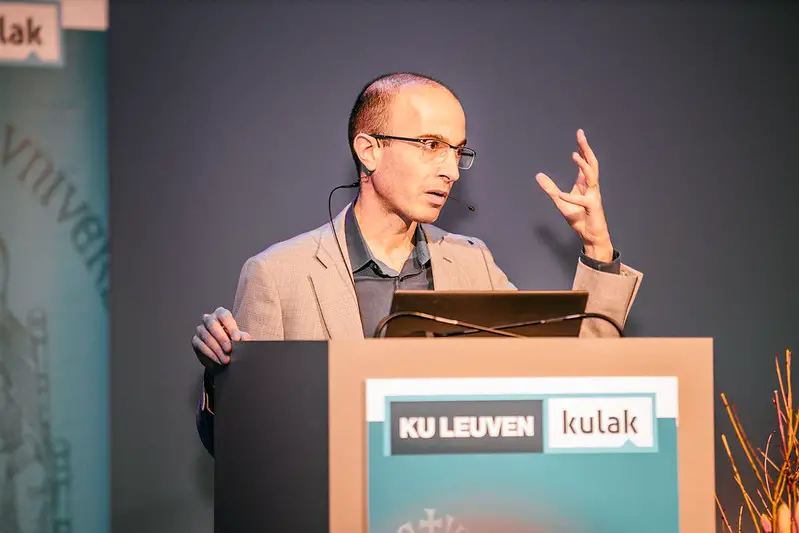
Chapter 1 – Despite being not the earliest humans, Homo sapiens managed to take the place of every human species in the world.
As being humans, we are very exceptional: we have the full command of the entire world. Not being content with where we are in the world, we have even flown out of the planet to discover what’s in the universe, and likely to establish colonies in the space.
What was the thing that enabled us to achieve all those things? To learn about it, we will go to the time when everything began, when our kind first evolved.
The earliest traces of humankind dates back to approximately 2.5 million years ago in East Africa. They were the product of the evolution of a genus of great apes, which is called Australopithecus. The first human kinds like Homo rudolfensis and Homo erectus ultimately emigrated, leaving East Africa to find more suitable environments. After having adjusted themselves to their novel environments, they evolved, as a result, into more kinds of Homo, among which there was also Homo neanderthalensis in Europe and Asia.
It is only when we get to 2,2 million years later that we witness the earliest modern humans, Homo sapiens. This novel kind of human was not especially exceptional. Of course, their brains were bigger, they walked upright, they were able to use the equipment, and they were very sociable, all of which was also the case for the other kinds of humans. Neanderthals, for instance, could hunt big animals and v-could use fire when Homo sapiens wasn’t even around.
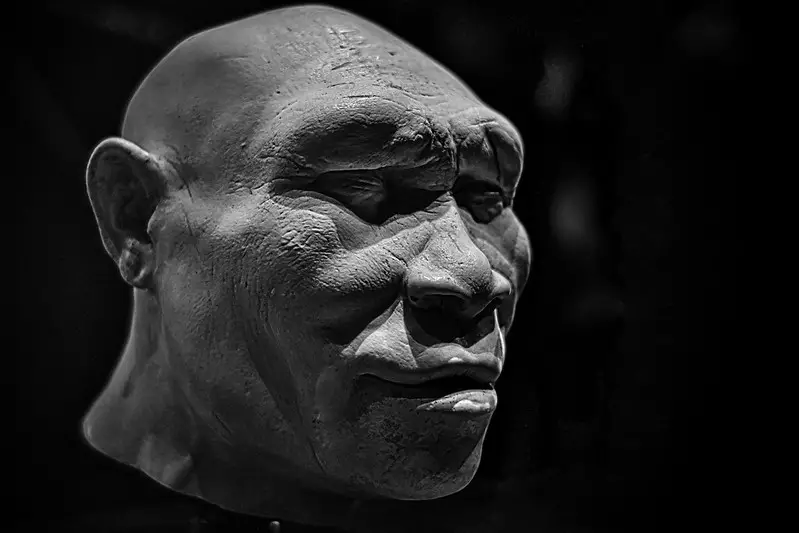
Though Homo sapiens got no exceptional skills, they were successful and scattered all across the world, whereas every other kind of human species went extinct. How come did this happen?
Two theories exist to find an answer for this: According to the Interbreeding Theory, Homo sapiens started sexually engaging with the other kinds of humans – most famously, with Homo neanderthalensis –, the outcome of which was the slow merger of the human kinds. This theory has proof that underpins the point of view, which is the fact that the DNA of present-day European people includes one to four percent of Neanderthal DNA, together with some DNA from other human kinds that existed before Homo sapiens.
What the Replacement Theory puts forward, however, is that Homo sapiens brought about the end of other human kinds by using their somewhat better abilities and technology. While doing that, they pursued two methods: they seized their nutrition sources or brutally decimated them.
Of these two, which one is most possible to be true? Actually, each of them can possibly be true to some extent: Homo sapiens most likely caused the other human kinds to die out and in the meantime mated with them.
Chapter 2 – When their Cognitive Revolution took place, Homo sapiens obtained new skills like being able to form thoughts and talk to others, which enabled them to subdue the world.
By now, we have observed the way Homo sapiens made other kinds of humans go extinct and that it was thanks to their small advantages that Homo sapiens got an advantageous position. However, what did precisely provide them with the upper hand?
What we look for is present in the unprecedented composition of the Homo sapiens’ brain. Approximately 70,000 years before today, the brain of first modern humans experienced an abrupt evolutionary change that is called the Cognitive Revolution. This evolution in the brain provided them with a comparatively immediate increase in brainpower.
Once their brain capacities had increased, Homo sapiens could exceed their opponents. To illustrate, they started to create bigger, more complex communities; they created more complicated modes of hunting instruments and methods; they also started to create rudimentary trade networks.
What those upper hands indicate is that Homo sapiens were able to find food and resources, no matter how severe the environmental circumstances are, a lot more straightforward than the other kinds of humans.

To illustrate, so as to go to America, Homo sapiens needed to be able to endure the Arctic climate in Siberia while crossing to America. Thus, they discovered to become a group and hunt the big, very nutritious mammoths and figured out how to invent snowshoes and clothes that can keep them warm by using their skin and fur.
Thanks to the Cognitive Revolution and its effect on brainpower, modern humans were able to go to the most distant parts of the world. Having originated in Africa, they scattered everywhere and established colonies in Europe, Asia, America, and even Australia.
With modern humans scattering everywhere in the world by means of their enhanced hunting methods, however, marks of extinctions were left wherever they went.
Only 50,000 years before today, for instance, Australia was home to a plenitude of big mammals living on the land – ground sloths as tall as giraffes and armadillos as large as minivans! However, just a few thousand years later, Homo sapiens settled in Australia and the immense bulk of these animals died out.
Chapter 3 – The ability of Homo sapiens to form intricate language yielded excellent benefits, enabling them to scatter and increase in number.
In your opinion, what is the best example that comes to your mind when talking about human sophistication? Most people respond to this question by saying language. Human language is very sophisticated and elaborate, particularly when juxtaposed with the way other species communicate with each other
So it won’t be astounding to know that the improvement of complex language was one of the most crucial things that paved the way for Homo sapiens control on Earth. Let’s go deeper in order to understand the reason behind it.
Homo sapiens are sociable creatures, which means we are part of communities. Language enables information to circulate easily among people inside those communities, which indicates that it is possible to share valuable lessons – regarding food, predators, or even threatening, unreliable people inside the community.
To illustrate, if someone has discovered a copious quantity of fruit trees, he can share with others the location. Should somebody finds out where a predator hides, he can inform the whole community to stay away from that area. In each of these situations, language provides the community with a clear edge.
However, maybe the most important advantage of language is that thanks to language, a shared understanding among individuals within a community arise, and this quality provides us with our unparalleled edge.

Other species that manage to work together with lots of them in a group also exist, such as bees, however, they don’t work together as flexible as we do. They are unable to adjust the order in their society according to differences in their surroundings, such as novel menaces or chances.
Animals that are able to work together flexibly also exist, like chimpanzees. They can adjust themselves to the differences they feel in their surroundings. However, they are unable to work together in even a bit larger numbers since the collaboration necessitates knowing the other people closely, and it is difficult to achieve in big groups.
There are just one species that are able to collaborate flexibly and in big groups: Homo sapiens. This stems from language, thanks to which apart from being able to disseminate knowledge regarding the material world, we are able to debate on notions, such as gods, history, and rights. These notions – which the author defines as common myths – are imaginary productions of the human brain. They constitute an important place in human culture, and thanks to them, we can collaborate in big groups even if we ourselves are not intimately close to everyone. Through the dissemination of these common myths about faith or identity or freedom, individual members created communities.
First Homo sapiens consisted of bands of small numbers – approximately 150 at most. However, once language and common myths had been invented, our communities managed to get even more people into the community: Villages transformed to cities; cities transformed to nation-states, and nation-states transformed into the global society of contemporary ages.
Chapter 4 – At the time of the Agricultural Revolution, humans changed into farmers from their previous occupation of foraging, which brought on a soaring population increase.
During a very long time in history, The way homo sapiens have lived was that of a nomadic. The immense bulk of our forebearers got by through hunting prey and gathering vegetation for the rest of their lives. Instead of dwelling in one place, they migrated to the places where there was an abundance of food.
However, approximately 12,000 years before today this lifestyle transformed as the Agricultural Revolution took place. This date marks the end Homo sapiens lifestyle that had been only based on hunting and gathering and the change whereby Homo sapiens started working the land and making animals domesticated. Approximately 10,000 years later, nearly the whole humankind had started working in agriculture – a genuinely radical transformation.
And a somewhat perplexing one. Though we might see farming as something that has existed since an unknown time, it is not easy to understand the reason behind our first forebearers preferring agriculture to the hunter-gatherer way of life.
First, when it comes to labor, agriculture takes up a lot of time. In a hunter-gatherer lifestyle, the only thing that is necessary is a four-hour long foraging ample food. However, a farmer has to toil from the sunrise to the sunset on his fields.

Second, the quality of food is also an issue. In the first years of agriculture, our forebearers were limited with a small variety of cereals, like wheat, which is not only difficult to digest but it also doesn’t contain necessary nutrients and vitamins. In contrast, in a hunter-gatherer lifestyle, people could relish the vast diversity of meat, nuts, fruits, and fish.
Then, what is the reason for changing into an agricultural society?
Two reasons explain this phenomenon:
One suggests that the transition to agriculture was a gradual process that advanced slowly; as newer generations were born, the process turned into something more entrenched in society, and until when historians revealed the disadvantages of farming, we were already at the point of no return.
The other suggests that though agriculture had defects, there is one huge upside it gives: its efficiency outperforms hunter-gatherer lifestyle to a great extent. Using merely a small plot of land, farmers were able to cultivate a huge size of plants that can be eaten. Due to this boom in the food stocks, our societies managed to support a much greater number of people. As a consequence, there was an exponential increase in the number of Homo sapiens.
However, with the rise in the number of Homo sapiens an issue arose: what would be the way of dealing with this kind of increase in population for societies? We are going to touch upon this in the following chapters.
Chapter 5 – To make commerce run more smoothly in big communities, we discovered money and writing.
Prior to the agricultural revolution, people had lived comparatively primitively. Were you not to have sufficient meat, you could just go to your neighbors to ask them to provide you with their surpluses. Usually, they would help you out, trusting that you would pay this favor were they come to you to ask something.
However, as agriculture came into practice, this economy transitioned into an exchange system instead of being based on favors.
What is the reason?
Being more efficient, agriculture permitted humans to yield sufficient food for the community. Not having to feel the continuous stress of going to hunt for the next meal, some humans discovered new professions, such as blacksmithing and weaving. To procure food, people bartered their complete commodities– such as a knife or a shovel – with farmers in need of such tools.
However, shortly later, this trade economy was found insufficient.
With the constant growth of the bartering market, finding a person whose commodities you are interested in and who would like to have your commodities in return got more challenging. Were you to want to obtain some delicious pork from a farmer in exchange for your knife, for instance, what would you do when he has lots of knives at home? Or were he to want a knife of yours, but didn’t still own a pig to kill? He might give you his word that he’d give you a pig when he has one in the future, however, do you really know whether he’d be the man of his word?
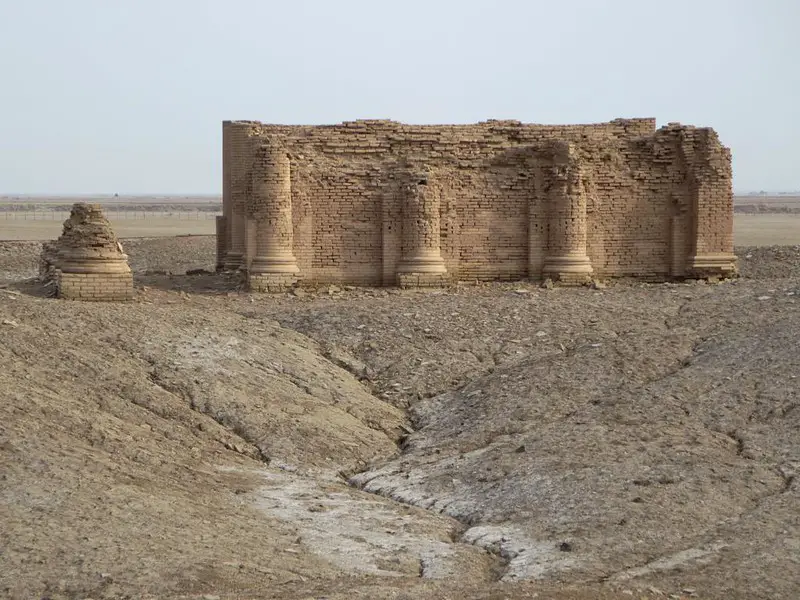
To address such issues, in roughly 3,000 BC, Homo sapiens invented writing and money.
The Sumerians, a people who once inhabited Mesopotamia, were the first community to undertake this. So as to save the information necessary for intricate trades, they started engraving people’s business activities on clay tablets by means of simple economic symbols. Simultaneously, they began using barley as money to develop a regulative system of payment.
Through this, it became possible to pay the pig farmer with money that can be readily employed in whatever else he may lack. Or, were you to receive his promise about giving you a pig, you were able to write down the business activity and could demand your payment when the time came.
Chapter 6 – The rise of empires and religion propelled humans toward world unification.
As learned in the previous chapter, the discovery of writing and money facilitated business activities and made it more difficult to perform commercial fraud. However, this doesn’t show that economies abruptly began functioning easily and effectively. The truth is that with the increasing developments in the societies and economies continued to grow, they turned into something more challenging to command and regulate.
Then, what methods did societies turn to?
Societies created laws to control people’s conduct and organizations of authority to guarantee that people followed these laws. Therefore, the earliest hierarchical societies came into being, with a king or emperor being situated at the top of the pyramid, having control over all other people.
Despite our understanding of these laws being authoritarian and brutal today, the kingdoms and empires in history created a lot of political, social, and economic balance. First, they produced efficient bureaucracy that made laws and customs uniform.
To illustrate, we can look at the Hammurabi Code, an amalgamation of laws declared by the monarch of Babylonia, Hammurabi in 1776 BC. This code consists of a collection of laws – which were implemented in the whole Babylonian lands – that deals with fields like tax, theft, and murder. Through this code, the understanding of what people could do and were banned to do was established all across the Babylonian lands. No matter where they went or did commerce inside the Babylonian frontiers, people were cognizant of what they were allowed to do.
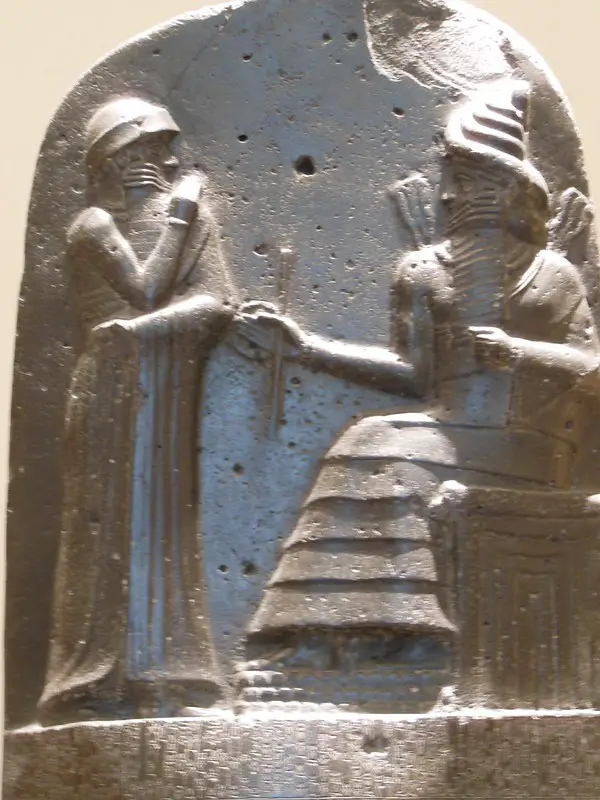
So as to instate their laws, monarchs had to have people obey their authority. They achieved this objective mainly through the effect of religion. Were people to acknowledge that the monarch’s place in the pyramid was the top part because the god wanted so, people would be much more willing to obey monarchical authority.
King Hammurabi, for instance, said that the gods gave him the mission to command the peoples of Mesopotamia in order to make his authority and his code legitimate
The more empires expanded, the more powerful the religions favored by them became. Either through coercion or slow assimilation methods, monarchical authority was able to confine various ethnic and religious communities into several mega-cultures.
Chapter 7 – With the revolution in science, humankind modernized further, which enabled novel technologies, imperialism, and economic development to happen.
Nearly throughout their time on Earth, people have been a very cynical breed. Most people for the entire history were in disbelief when it came to their own talents but trusted the divine power of an all-powerful god. Due to God having command over all people, it was an attempt in vain for people to engage in science or obtain new information as they were nothing but mortals. Laying your back to your chair and waiting for your already established fate sounded better.
But during the 16th and 17th centuries, this negative approach started to transform. A revolution in science pervaded the entire continent of Europe; instead of allowing advancements to hinge on God only, humankind began considering the ways of enhancing society through science.
Through the utilization of the scientific principles of research, experimentation, and observation people made tremendous epistemological advancements in fields like medicine, astronomy, and physics – every advance beneficial in turning society into a more suitable place to live.
Let’s examine child mortality, for instance. From the beginning of the use of scientific techniques in medicine and public health, child mortality has been occurring far less than it used to be. Before the use of scientific principles, the wealthiest people in society were likely to see their two or three children be the victims of premature deaths too. Today, child mortality has been reduced to merely one death for every thousand children born for everyone.

Apart from its help to humankind, the development of science apparently works well for economies, too – which most European states noticed promptly. While looking for novel ideas and resources to make their states’ treasury fill with money, monarchs poured money for scientists and explorers.
To give an example, the ruler of Castile funded Columbus’s renowned quest across the Atlantic. As a reward for funding the quest, the monarch ruled a vast American empire swarming with precious such precious resources as gold and silver.
In a similar fashion, Great Britain appointed James Cook to travel through the terra incognita of Southern Pacific – as a reward for this effort, they colonized the lands of Australia and New Zealand.
In each example, the European states financially developed through exploration and scientific innovation. Sadly, European nations expanded their treasury largely at the expanse of indigenous people.
Chapter 8 – The global society whose principal faith is in the power of capitalism is the product of the imperialist behavior of European powers.
All of us have learned above the way the scientific techniques were employed by numerous European states to expand their states’ borders and make more economic gains. They definitely managed to achieve this; when we go back to the 19th century, we see Great Britain occupied more than fifty percent of the world.
As their empires grew to this extent, the European states propelled their ideas into the farthest places of the globe. In place of local traditions, cultures, and laws, we witness the creation mega-cultures that stem from European models – ranging from western religion to democracy and science and so on. Even if those European states no longer exist, we continue to cope with our cultural legacy.
Of all global cultural norms, capitalism has become the most prominent one. Mostly because of the European states, people globally hold faith in the significance and influence of money.

Nowadays, no matter where people live – Brazil or Bhutan, Canada, or Cambodia, it doesn’t matter – the lives of a great many people have concentrated around money and tangible possessions; everybody desires to increase their incomes to the most possible extent or show off their richness through what they wear.
Actually, the influence and range of worldwide capitalism, taking assistance from science, is corroding numerous other global cultures, particularly religion.
Contemporary science has refuted numerous religious principles. To illustrate, many people no longer have faith in the formation of the planet by God in seven days; today, we trust in the theory of evolution through natural selection put forward by Charles Darwin.
With the religious principles causing doubts, capitalist ideology becomes more prominent. Instead of the conventional belief of awaiting the afterlife that will give happiness, for instance, today people focus on enjoying life on Earth to the most possible extent. Naturally, it pushes us to search for, purchase, and consume more and more goods and services intended to render us more content.
Chapter 9 – People have never lived in as peaceful an era like this one.
Globalization keeps going forward determinedly. There are people unsatisfied with its progress, though. According to what people who censure globalization say, together with other things, globalization is damaging cultural diversity, converting the entire planet into one boring homogenous society.
However, notwithstanding such objections to globalization, globalization brings about a huge gain: thanks to it, the globe becomes a more pacific and serene place.
Modern states hinge on one other for their wealth. With globalization present in the world, networks of commerce and investment reach numerous diverse states. When a region is unstable or a war breaks out, there will be some financial impacts for everyone.
Because of this, nearly each of America’s, Europe’s and Asia’s prime ministers or presidents put great emphasis on the preservation of global peace. This has been a success for most of the time. From 1945 onward, there has been no state that is recognized by the UN and annexed and destroyed by another state. Think about the very brutal world when the Second World War was over, and we can see more clearly how serene and nonviolent our world has become today thanks to globalization
Thus, the 20th century has been the most serene century until now. Though you may feel astounded to read it, a short summary of history demonstrates that our societies, starting from the agricultural revolution, have been rejecting violence.
According to estimations, prior to farming, when people led a hunter-gatherer lifestyle, three-tenth of all grown-up men fell victim to murder or killing. In contrast, the planet has transformed and become a place in which the deaths of one-hundredth of grown-up men are considered violent. The progress we have achieved is evident.
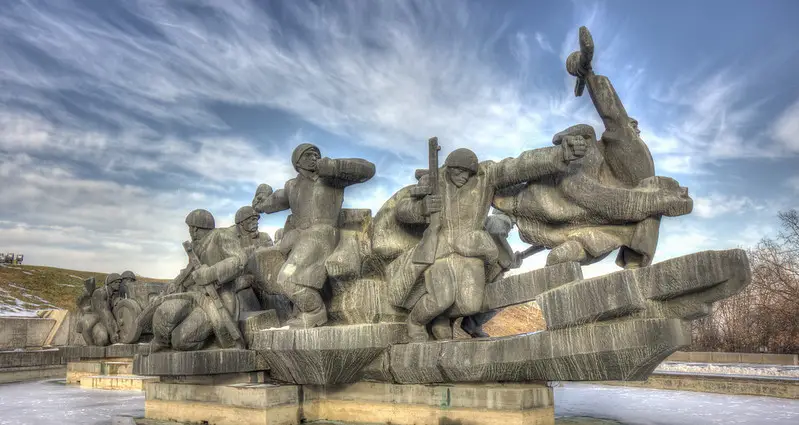
However, how come did this come about? With the hierarchical, structured societies emerging following the agricultural revolution that coerced people not to defy laws outlawing murder and violence, and therefore generated stable, working societies and economies.
Consequently, the era which all of us live in is the most peaceful to date, however, we shouldn’t be overexcited about it. We have to be mindful of possible sources of conflict since if a far-reaching international war broke out today, the amount of human casualty would be unimaginably high. We should relish our peace, and remember as well that we have to take action to preserve it.
Chapter 10 – We cannot say history is good or bad. What happened in history plays almost no role at all in our individual happiness.
We have almost reached the end of the trails of Homo sapiens; our discussion has spanned 300,000 years, starting with the savannahs of East Africa and finally arriving at the present-day globalized world.
By now, we have roughly comprehended the common trends in the history of human species, however, we cannot say we’ve actually discussed its effect on people. Despite the immense amelioration in our well-being, prosperity, and knowledge, do we feel happier?
Unfortunately, it is possible to say that we are not, talking on the individual level. What is the reason behind it?
Well-being surveys that are carried out with individuals, published and evaluated by psychologists, have demonstrated that, though there are rises in happiness or sadness for individuals in the short run, in the long-run, our happiness has neither increased nor decreased.
Suppose that you are made redundant at your workplace and go through a dramatic decline in your happiness; simultaneously, you would believe that terrible sensation would never end. However, following several months after your redundancy, you’ll probably be as happy as you used to be when you were working, which is the ”normal” level.
Let’s look at this anecdote from history: at the time of the French Revolution, the French peasants most likely felt tremendous happiness after winning freedom. However, soon after this significant occasion, the mediocre peasant continued to do what he did before the revolution, which was fretting about his useless son or the following year’s harvest.
Homo sapiens most likely developed this equilibrium between complacency and hopelessness to guarantee that they are prepared not to be hit by a dramatic event and to get sufficient satisfaction so that they cease to make efforts for bigger and better things.

Thus, on a personal level, it is possible to say that people did not get much happier. What is the situation like on a societal level, though? Considering all the ameliorations in our living standards, the people of this era must feel happier in comparison with their forebearers.
Actually, the answer changes according to who you are. A great deal of the wealth created by human progress has only filled the coffers of several white men. Unless you’re inside this group, it doesn’t make any difference if you belong to an indigenous tribe, are women, or people of color, as life has ameliorated nowhere on Earth on the same levels. Imperialist powers in history and capitalism have repeatedly repressed and made these groups victims, and they have very recently started to get equal rights.
Chapter 11 – In the future, Homo sapiens is going to go beyond its biological boundaries, ultimately substituting itself with a completely novel species.
Now that we’ve learned about our history, we can move on to see what will come about in the future. What will developments in science and wealth bring about in the next years to come? The response to these questions can be found in the work of scientists who are already on the job.
At the moment, scientists are taking big steps in areas like bionic technology and anti-aging.
In the area of bionics – which means the merger of humans and machines – there has been remarkable progress. To illustrate, after Jesse Sullivan, an electrician from the USA, lost each of his arms, scientists managed to give him new bionic arms that he was able to use through his thoughts and nervous system.
Scientists are on the job to make quick leaps in the area of anti-aging. Lately, via changing its genetics, scientists have discovered a method to increase the lifespan of C. elegans worms twice as long, and it is only a matter of time that they attain the same accomplishment with mice, too. How soon will it be possible for scientists to manage to remove the aging gene from people?
Each of the projects mentioned above belongs to the Gilgamesh Project, the enormous scientific search for eternal life.

Then what hinders us? Well, presently, scientific research in these fields is constrained by multiple legal restraints whose foundations are ethical concerns.
However, these walls will have to be lowered one day. Should we find the smallest opportunity to live eternally, then certainly our desire to achieve eternal life will remove every hindrance on its way.
Possibly, in the near future, as Homo sapiens, we will alter our bodies so much via science that we won’t carry our Homo sapiens labels. Instead, all of us will turn into a totally novel species – one half being organic, the other mechanic.
Most probably, this novel species of superhuman will emerge – the only question that matters is when it’ll transpire.
Sapiens: A Brief History of Humankind by Yuval Noah Harari Book Review
Within 300,000 years, Homo sapiens have gone beyond being merely one of the numerous kinds of humans and turned into the most prevailing species to ever live on the planet. With the emergence of language, humanity has become increasingly more complex – which generated the interconnected global community in which we all live.
